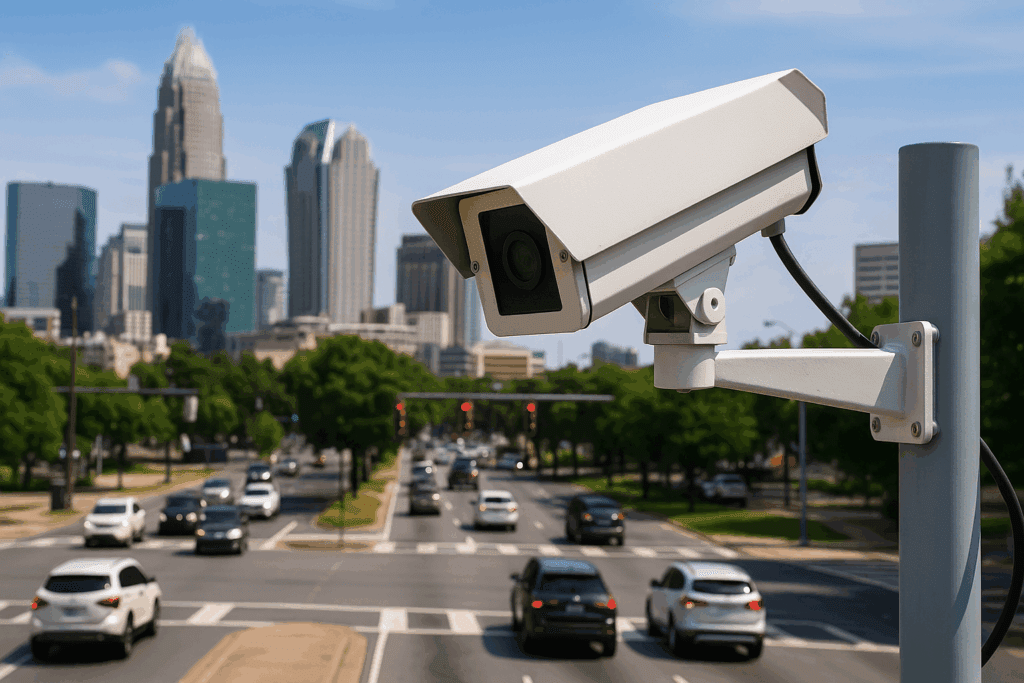Security cameras are common today. Many people use them to protect homes and businesses. But, before putting up cameras, you must know the laws. This article explains North Carolina security camera laws in simple words.
Why Do Security Camera Laws Matter?
Cameras help keep places safe. But cameras can also record people’s private moments. Laws protect people’s privacy. They tell where you can put cameras and what you can record. Breaking these laws can cause trouble.
Types of Security Cameras
There are many kinds of cameras. Here are some common types:
- Visible Cameras: You can see these cameras easily.
- Hidden Cameras: These cameras are small and not easy to spot.
- Indoor Cameras: Used inside homes or buildings.
- Outdoor Cameras: Made to work outside, in all weather.
Each type may have different rules. Let’s see what North Carolina law says.
Where Can You Put Security Cameras?
In North Carolina, you can put cameras on your property. This includes your home, yard, and business. But, you cannot record places where people expect privacy.
Examples of Private Areas:
- Bathrooms
- Changing rooms
- Bedrooms (if someone else lives there)
- Inside neighbor’s property without permission
Recording these areas is illegal. You can get fined or face legal problems.
Audio Recording and North Carolina Law
Cameras often record sound too. North Carolina is a “one-party consent” state. This means only one person in a conversation must agree to record audio. That person can be you.
If you record audio where you are part of the talk, it is allowed. But, recording others’ talks without being part of them is illegal.
Recording Public Places
Can you record in public places like streets or parks? Usually, yes. People do not expect full privacy in public. So, security cameras can record in these places.
But do not record audio in public without consent. That can cause legal trouble.
Using Security Cameras at Work
Businesses often use cameras to keep staff and customers safe. North Carolina allows this, but there are rules:
- Inform employees about cameras
- Do not record in private places like restrooms
- Use cameras only for security, not spying on workers
Following these rules keeps the workplace safe and fair.

Credit: thelitigator.com
Security Cameras and Neighborhoods
Many people put cameras outside their homes. This helps catch thieves or vandals. North Carolina allows this, but you must avoid recording your neighbor’s private areas.
For example, do not point cameras at your neighbor’s windows or yards. Respect privacy. If neighbors feel uncomfortable, it can cause disputes.
Signs and Notices
Some places put signs to warn people about cameras. In North Carolina, there is no law that requires signs. But putting signs is a good idea.
Signs can help people know they are being recorded. This may stop bad behavior.

Credit: avlwatchdog.org
What Happens If You Break Security Camera Laws?
Breaking the laws can cause problems. You may face:
- Fines
- Lawsuits
- Criminal charges
It is important to follow the rules to avoid trouble.
Important Points to Remember
| Topic | Rule |
|---|---|
| Camera Placement | Only on your property; not in private areas of others |
| Audio Recording | One-party consent required to record sound |
| Public Spaces | Video okay; audio requires consent |
| Workplace Cameras | Inform employees; no cameras in restrooms or private spots |
| Neighbor Privacy | Do not record neighbors’ private areas |
| Signs | Not required but recommended |
Tips for Using Security Cameras Legally
- Know the laws before installing cameras
- Use cameras only for security
- Respect others’ privacy
- Tell people if you record audio
- Check camera angles carefully
- Keep recorded videos secure
Frequently Asked Questions
Are Security Cameras Legal In North Carolina Homes?
Yes, North Carolina allows home security cameras on your own property.
Can I Record Audio With Security Cameras In North Carolina?
Recording audio needs consent from all parties involved by state law.
Is It Legal To Install Security Cameras In Public Places?
No, recording in public places without permission may break privacy laws.
Do North Carolina Laws Protect Privacy From Hidden Cameras?
Hidden cameras in private areas like bathrooms are illegal under state law.
Conclusion
Security cameras help protect homes and businesses. North Carolina has clear laws about camera use. You can use cameras on your property. But, do not record private areas of others. Audio recording needs one-party consent. Public video recording is allowed, but audio needs permission. Businesses must follow workplace rules. Respect neighbors’ privacy to avoid conflicts.
Following these laws keeps you safe and respects others. Always check rules before installing cameras. This helps avoid fines and legal problems. Security cameras work best when used fairly and legally.